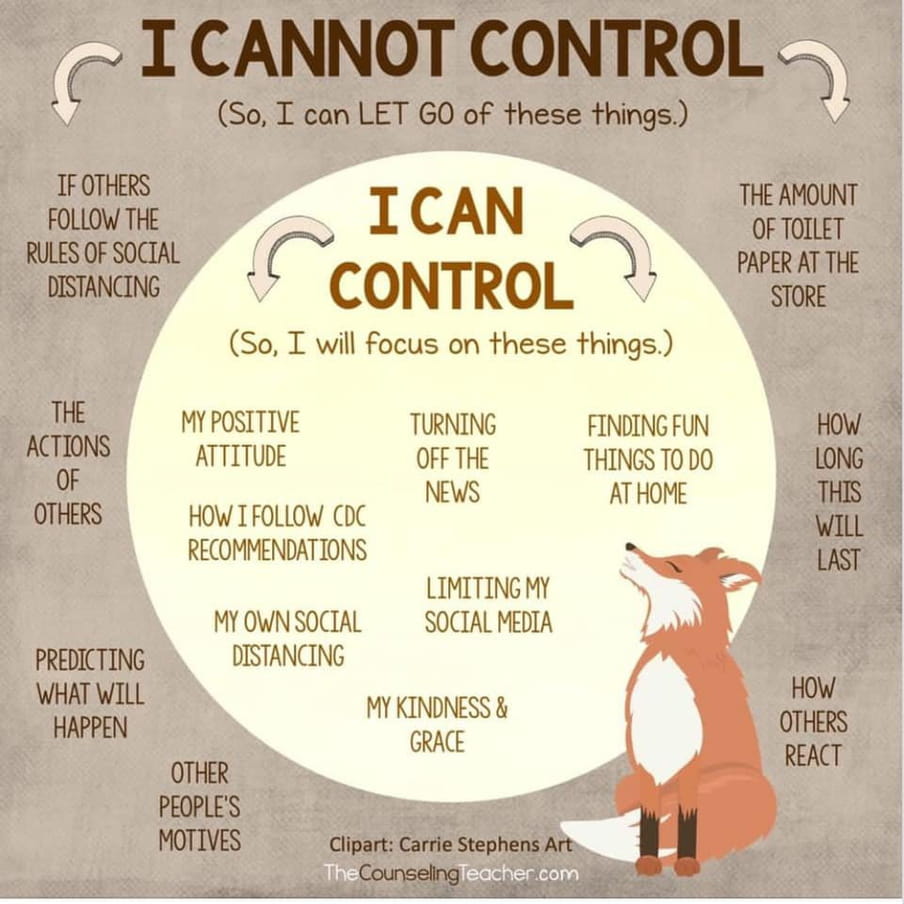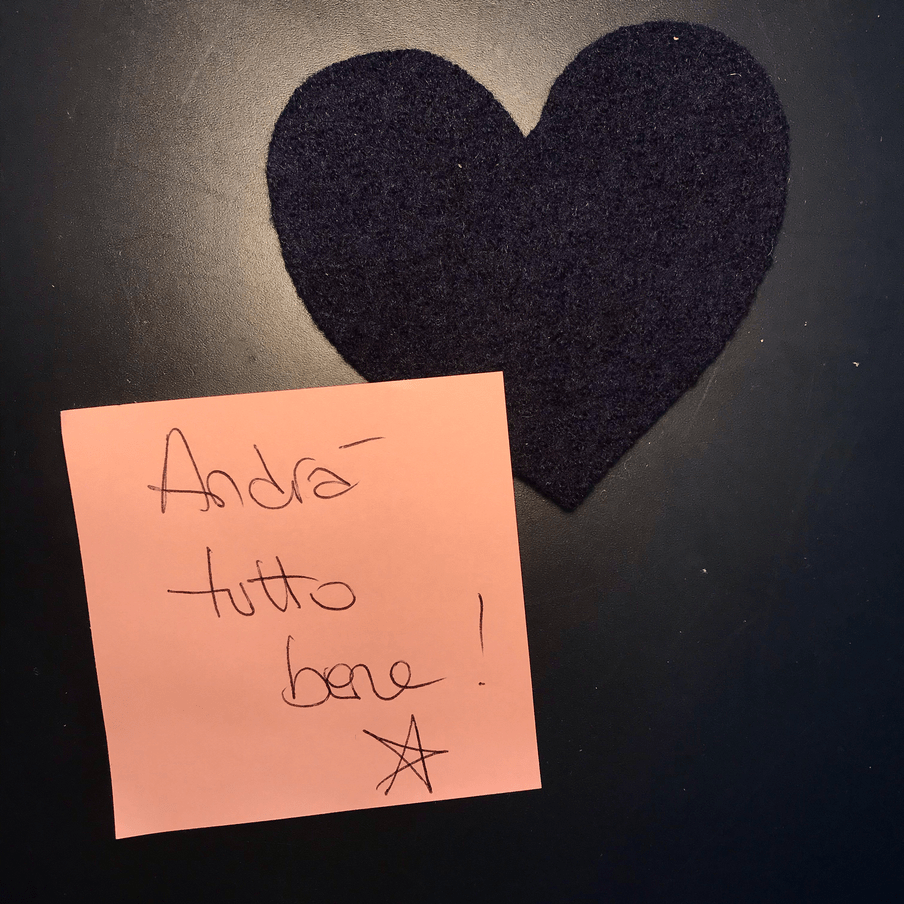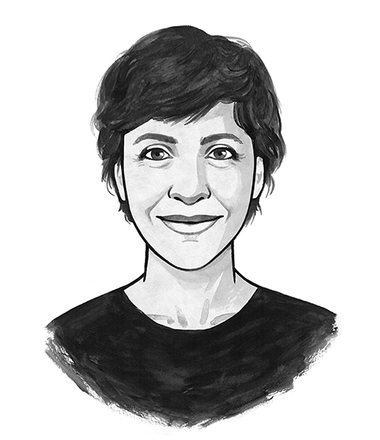Hi,
Last week I published a story about things I wished I knew about sex when I was younger, inspired by Sex Education, a Netflix series that I really enjoy.
When it was posted, I could hear part of myself screaming inside my head: How can you write about a teenage Netflix series at a time like this? We’re living in this extraordinary moment in time and you’re writing about your sex life?!
The thing is, my friends in Bangkok, Buenos Aires, Madrid, Quito and Addis Ababa are all experiencing different versions of a lockdown. We are more connected than ever – and a lot of us are having a hard time. But there are things we can control, as this useful image suggests.

I am very lucky not to be working for a traditional news site at the moment, because all I would do is write about the c-word. But at The Correspondent, we are providing context for the current pandemic, while at the same time making sure we write about everything else too. And, as a team, we try to laugh together and care for each other.
So, yes, why not talk about sex? After all, it is essential for our existence, and yet we talk very little about it in the open.
By writing about it, I learnt a couple of important lessons, thanks to members.
Here they are.
1. Call me by my name
In an initial version of my piece, I had mistakenly written that “vaginas come in all shapes and sizes” in a paragraph where I was actually referring to vulvas. Thankfully Hilde Atalanta, an artist whose work I admire a lot, wrote to point out my mistake:
“Indeed vaginas come in different shapes and sizes, however, the vagina is the internal canal that leads to the uterus – the part we actually can’t see from the outside. I’m assuming at point 11 you’re referring to the vulva, which is the external part of the genitalia: the part we can see when we’re looking in the mirror.
In Sex Education they unfortunately also use the word "vagina" when referring to the vulva, which is a bit of a missed opportunity in a series the main focus of which is to provide sex education. There’s so much more to our genitalia than just a vagina. Using the word "vagina" when talking about the vulva is a bit like using the word "mouth" when we’re actually talking about the face :)
Let’s start using the right words when we’re describing our genitals, not only to avoid confusion but to reclaim and understand our wonderful bodies for what they are. In sex education, just like in any part of our lives, language is key ♡”
2. Communicate, communicate, communicate
Lorraine Lysen, another member, suggested The Ultimate Guide to Sex and Disability, by Miriam Kauan, Cory Silverberg, and Fran Odette. “This book is such a good guide for non-disabled folks as well, because it heavily emphasises communication and discovering what works for you, so you can have great sex on your own or with others,” she wrote. “While disability forces you to have better communication in your sexual life, everybody can benefit from knowing what they want and how to communicate that.”
So, what do you wish you knew about sex before you started having it? Let me know below the article or by hitting reply here!
Andrà tutto bene (everything will be fine)
I ordered some laundry detergent for my son’s reusable cloth diapers from a local business in northern Italy and I got this with the package.

Everything will be fine.
Thanks for reading along, and stay healthy,
Irene
 Would you like this newsletter straight in your inbox?
Subscribe to my weekly newsletter where I talk about sexuality, reproductive rights and early childhood, discuss the best ideas from members and share updates on my journalism.
Would you like this newsletter straight in your inbox?
Subscribe to my weekly newsletter where I talk about sexuality, reproductive rights and early childhood, discuss the best ideas from members and share updates on my journalism.

